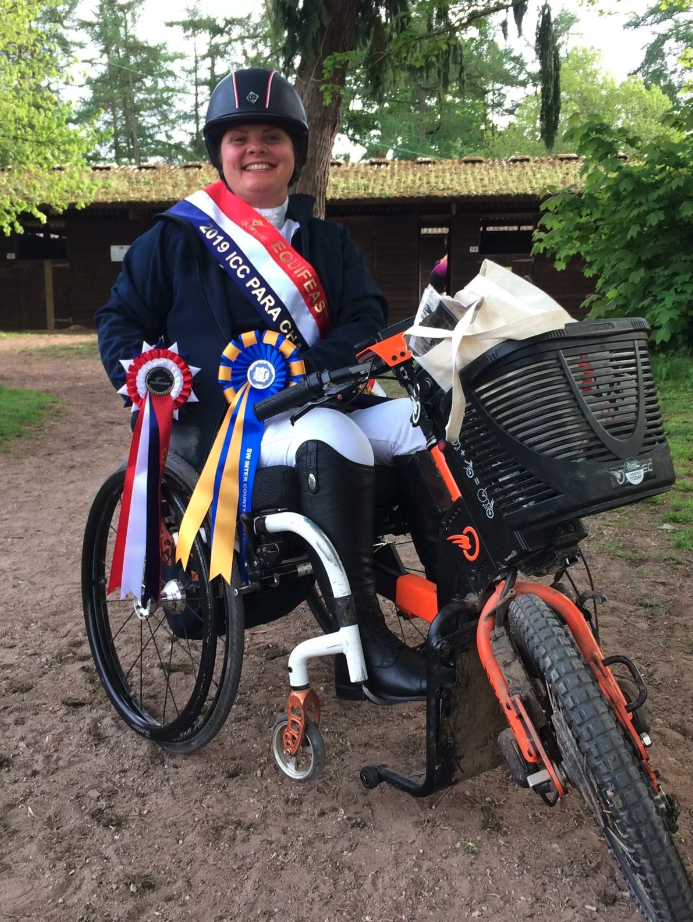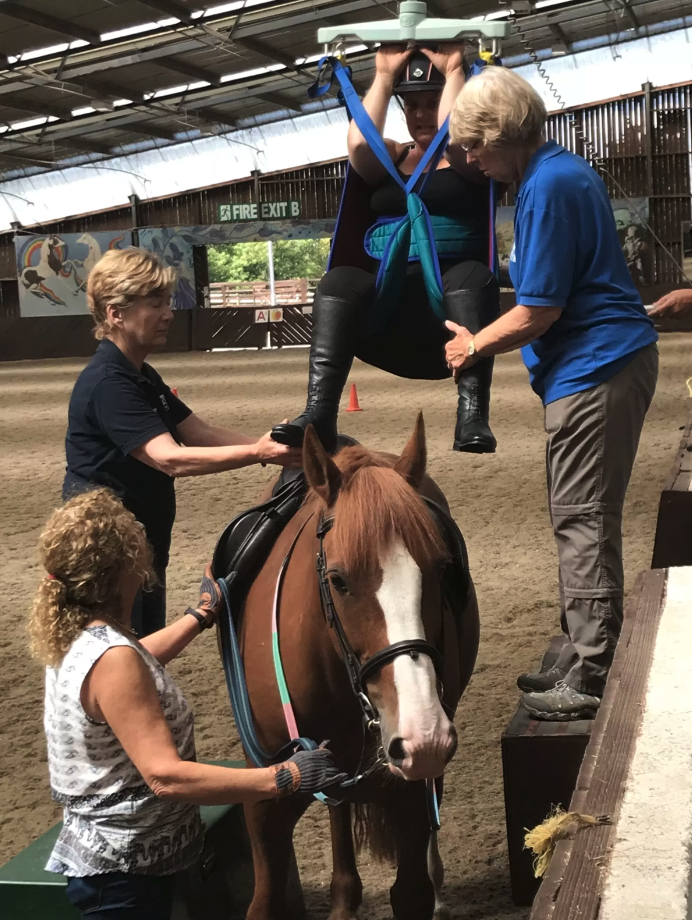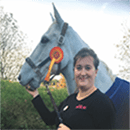Para equestrian Sallyanne says the Air Ambulance saved her life when her horse reared up and fell backwards on top of her, severing her spinal cord in the process.
“I thought I was going to die,” said Sallyanne, who has ridden since the age of seven. The accident occurred at a riding club event, when the mare she was riding refused at a jump and reared up when represented.
This week is Air Ambulance Week (9-15 September), organised by Air Ambulances UK, and Sallyanne is sharing her story to raise awareness of how important the medical service is, including for horse riders.
In 2023 alone, the Air Ambulance rescued more than 208 riders at an average cost of £4,110* every time the helicopter is called out. It receives no government funding and so depends on public donations in order to operate.
Watch Sallyanne and the doctors talk about the accident in the video below:
‘My fear subsided’

Sallyanne has been excelling in para dressage
In the case of Sallyanne, a crew from Great Western Air Ambulance Charity (GWAAC) attended the scene to administer strong pain relief and take control of the rider’s injuries.
They then airlifted her to Southmead Hospital in Bristol, their nearest Major Trauma Centre.
“When the Air Ambulance arrived my fear subsided. I felt safe,” said Sallyanne, a former nurse.
“One of the doctors, Greg, held my hand the whole time and never left my side throughout the whole procedure.
“The reassurance he gave me was wonderful. I knew I was in safe hands.”
Sallyanne broke multiple vertebrae from T11 – L2 and sustained a spinal cord injury at L1.
The mother-of-two underwent a nine-hour operation to stabilise her spine and spent a further six months in hospital.
She was paralysed from the waist down, with bladder and bowel complications, and now uses a wheelchair.
Washing in the kitchen sink

Sallyanne is lifted into the saddle
A long journey ensued to adapt her three-storey townhouse into a more accessible home.
“I had a hospital bed in my lounge, and I slept downstairs for nine months,” adds Sallyanne.
“I couldn’t get to the bathroom to use the loo or shower, so I went to a friend’s house once a week and the local sports centre for a shower.
“This was extremely difficult — washing in the kitchen sink has its challenges.”
Since the accident, Sallyanne has learned to drive again and organised many charity fundraising events, including a charity ball in aid of GWAAC that raised £6,000.
She now works supporting other individuals who have suffered spinal injuries and have bladder and bowel conditions.
Sallyanne has also started riding again and competed at her local county RDA championships.
“GWAAC is a very close charity to me and my family, who came to my rescue on that fateful day,” she said. “There were my knights in shining armour.
“I encourage people to donate and raise money, as you never know when you or someone you know may need its services.
“Every bit helps. I look at how far I have come and I smile.”
Frontline emergency services
Air Ambulance Week is the only week of the year dedicated to raising awareness and funds for the vital lifesaving work of air ambulance charities.
There are 37 air ambulance helicopters in the UK operated by 21 air ambulance charities.
They provide pre-hospital care support to the NHS and form an important part of the UK’s frontline emergency services.
“Anyone anywhere in the UK can become a patient at any time. The message, “Today’s Supporter, Tomorrow’s Lifesaver,” reminds us that by becoming a supporter today, you can help save lives tomorrow,” said a statement from Air Ambulances UK.
*Cost varies depending on geography, patient need, clinical and operational models of the local air ambulance charity.
To show your support for Air Ambulance Week, you can make a one-off donation to Air Ambulances UK or get in direct contact with your local air ambulance charity.
Main image (stock photo): copyright Shutterstock. Inset photos: copyright Sallyanne/GWAAC









